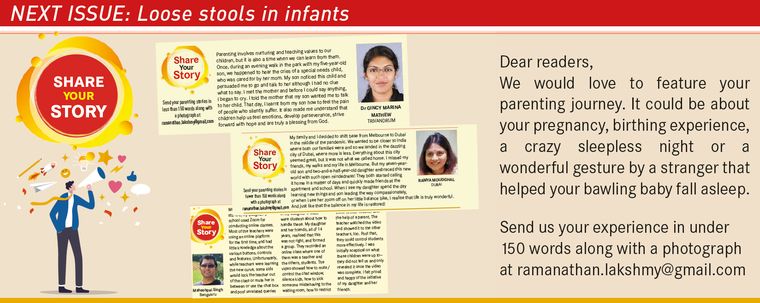WHEN I HAD MY BABY, I questioned everything—just like any new parent. Even applying a popular brand’s vapour rub on my baby’s chest seemed an adventurous thing to do and one whose pros and cons had to be considered. Recently, a friend whose baby was suffering from a bad bout of cough called me up to check the safety and efficacy of the practice.
Cold rubs do work especially if a child or adult is suffering from upper respiratory tract infection. Not much is known about how cold rubs, also referred to as vapour rubs or chest rubs, bring relief but much of it is credited to being the result of a placebo effect. In the medical world, substances that have a placebo effect are no less valued for their recovery effect. Cold rubs fall under this category.
When a cold rub is applied on a child or adult suffering from nasal blockage or chest congestion, the menthol present in it stimulates the cold sensitive receptors in the skin to open up. This makes the person experience a sudden burst of chill at the site applied. The cooling sensation that floods the nasal passages or throat gives a sense of clearing, if only temporarily. Much of the recovery or decongestion that one feels is therefore a result of perceived recovery or the placebo effect.
In general, cold rubs contain three main ingredients—camphor, menthol and eucalyptus oil. In some cases, camphor has been identified as a neurological irritant, and menthol may trigger seizures in a few children and adults. Cold rubs also contain essential oils, like that of the eucalyptus tree, that help impart a distinct scent. Essential oils are highly concentrated and volatile and their effect on infants and their easily permeable skin haven’t been studied yet.
Cold rubs have been one of those nondescript bottles that every house stocks up on come winter. They are also very commonly rubbed on chests or throats of children. However, an infant can develop an acute response to the menthol/camphor present. Avoiding them at least for the first one year of a baby’s life is a case of being safe than sorry.
If you feel your child is suffering from cough/cold continuously, get an evaluation by a paediatrician or an ENT (ear, nose, throat) specialist. Treatments can range from home remedies and humidifiers to nasal drops and antibiotics.


